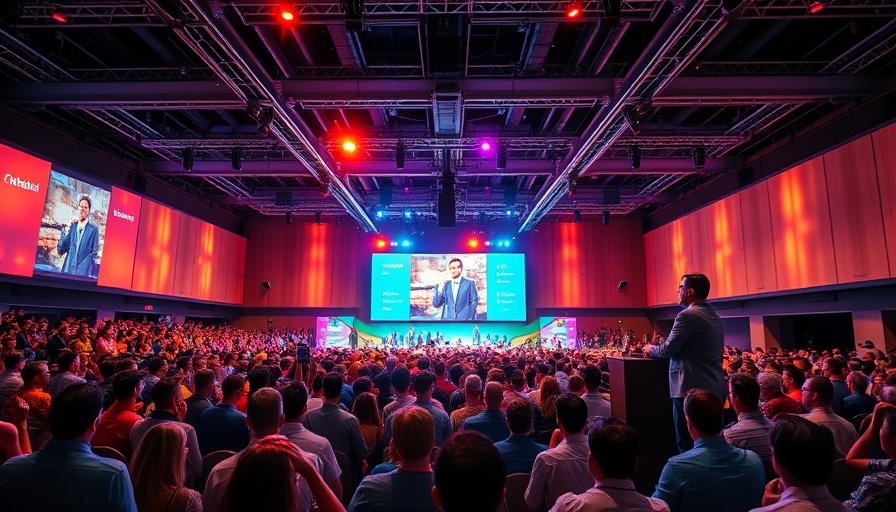
Understanding the Shifts in Experiential Marketing
The 2025 Experiential Marketing Summit (EMS), a vibrant congregation of over 1,500 industry professionals, unfolded from April 14-16 at the MGM Grand, Las Vegas. Participants included B2B and B2C marketers, trade show organizers, agency executives, meeting planners, and event strategists, all essential stakeholders in the event marketing ecosystem.
In an era where audience engagement is paramount, the insights shared at EMS 2025 promise to reshape the industry. From community stewardship to genuine co-creation, this year’s theme resonated with the need for introspection and strategic pivoting.
The Power of Collaboration in Team Building
Team-building and transparency emerged as essential themes throughout the discussions. The importance of establishing genuine partnerships and crafting internal teams that resonate with target audiences was heavily emphasized. Shiz Suzuki of American Express shared her experience emphasizing the need for diverse teams that reflect the audiences engaging in these events. This concept is crucial: the more varied the team, the richer the insights and creativity, leading to more memorable experiences for participants.
Charlotte Pedersen from Salesforce added that the intentional crafting of teams is fundamental to delivering exceptional experiences, urging attendees to be thoughtful about the skills and backgrounds of team members. This focus addresses ego, promoting collaboration over competition, encouraging collective creativity.
Innovative Strategies Amid Budget Constraints
With rising global tariffs and economic volatility impacting budget allocations, the challenge of delivering exceptional events is more pronounced. However, EMS instructors also highlighted how budget constraints can ignite creativity. Instead of viewing limitations as obstacles, many event professionals are beginning to perceive them as opportunities for innovation.
Practical strategies discussed included integrating experiential campaigns into wider marketing efforts, leveraging content creators to broaden audience reach, and utilizing creative brainstorming sessions to encourage spontaneous ideas. As Phil Hansen poignantly noted, “Giving ourselves intentional limitations is a really powerful way to reshape not just that singular project, but our whole mindset.” This perspective reframes challenges into fertile ground for creativity, bolstering marketing results.
Emphasizing Sustainable Practices
Sustainability has transitioned from being a buzzword to becoming a core component of event marketing strategies. Conference discussions reflected a deep commitment to addressing environmental footprints and integrating sustainable practices into all facets of event execution. This shift indicates a collective understanding that future success hinges not only on audience engagement but also on responsible stewardship of the planet.
With these trends, both sustainability and creativity become intertwined, underscoring the notion that achieving memorable events need not come at the environment's expense. By fostering this positive relationship, event marketers can meet consumer expectations while also adjusting their brand narratives towards more ethical standards.
Looking Ahead: The Future of Experiential Marketing
The insights drawn from EMS 2025 suggest a transformational moment for event marketing. Creative strategies fueled by collaboration and a commitment to sustainability are not just trends but necessary shifts in how brands connect with their audiences. As marketers prepare for upcoming events, leveraging these insights will be vital to adapt and thrive in an increasingly complex landscape.
As we look forward to EMS 2026 scheduled for May 18-20 at the MGM Grand, this year's learnings are sure to influence future strategies. Business owners looking to scale their operations must embrace these evolving dynamics as they craft robust branding and customer acquisition strategies that resonate.
 Add Row
Add Row  Add
Add 



Write A Comment